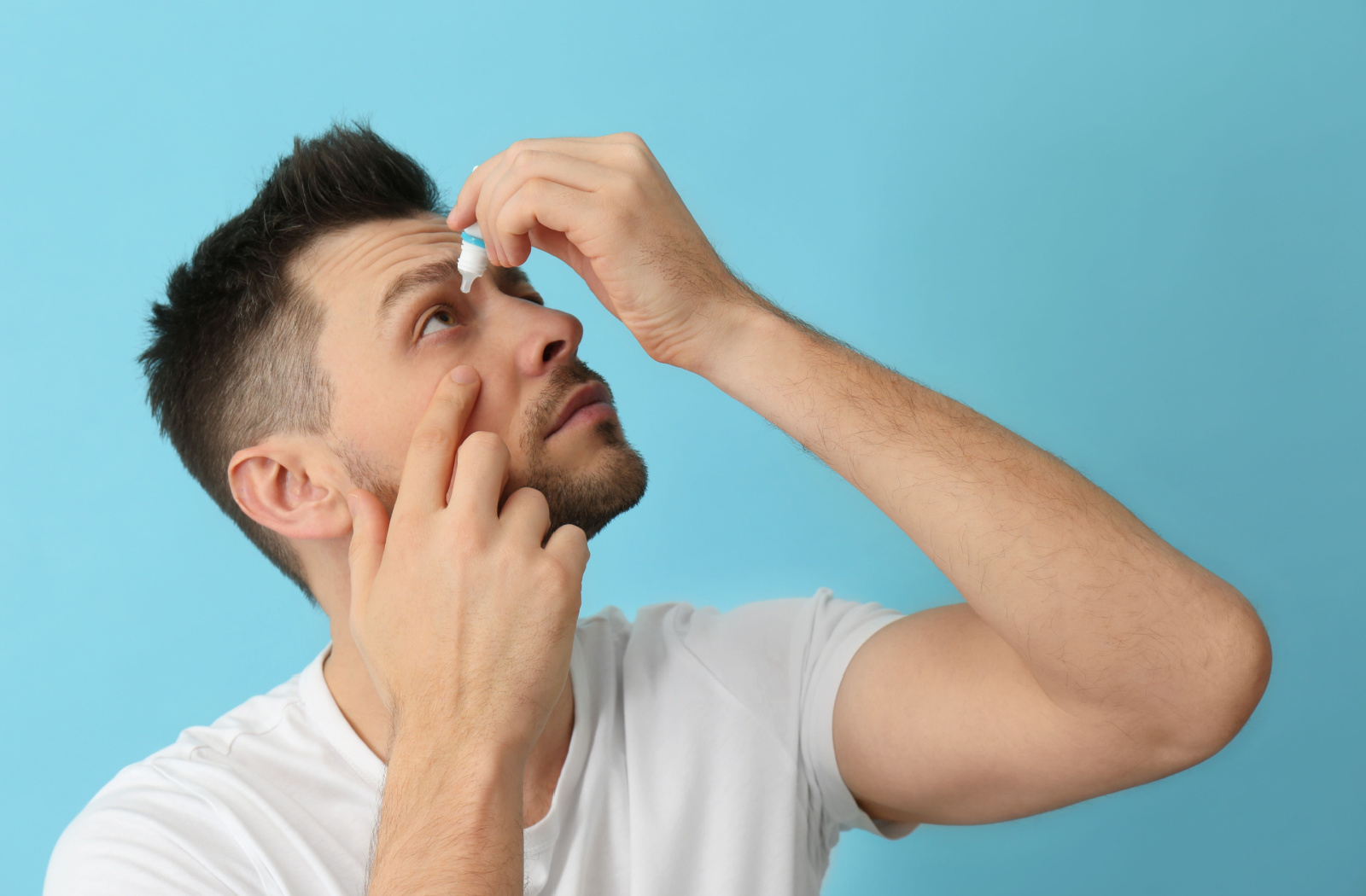Glaucoma is a serious eye condition that affects more than 450,000 Canadians. It occurs when the optic nerve, responsible for transmitting visual information to the brain, becomes damaged due to increased eye pressure.
If left untreated, glaucoma can lead to irreversible vision loss and even blindness. With no early symptoms, regular eye exams help with early diagnosis and treatment to prevent vision loss.
Many glaucoma patients experience light sensitivity and glare. Wearing sunglasses can help minimize the discomfort caused by light and glare.
Glaucoma & Eye Health
Glaucoma, often called the silent thief of sight, typically develops when the drainage system in the eye becomes less efficient, leading to a buildup of fluid and increased intraocular pressure (IOP).
This elevated pressure gradually damages the optic nerve, causing peripheral vision loss and tunnel vision, making it difficult to carry out activities like driving. Other symptoms of glaucoma include:
- Blurry vision
- Redness
- Eye pain
- Light sensitivity
- Halos
- Watery eyes
- Nausea
- Vomiting
- Headache
- Vision loss
Types of Glaucoma
Symptoms can vary depending on the type of glaucoma. Different types of glaucoma include:
- Primary open-angle glaucoma is most common and generally develops without early warning signs. It results from increased pressure in the eye that damages the optic nerve.
- Angle-closure glaucoma is uncommon but can progress gradually or appear suddenly, making it an eye emergency. It results from a blockage in the drainage system, leading to fluid buildup, increased eye pressure, and damage to the optic nerve.
- Secondary glaucoma can result from an injury, surgery, infection, tumour, certain medical conditions, medications, and eye abnormalities that cause increased eye pressure.
- Normal-tension glaucoma, as the name suggests, occurs when eye pressure is normal but there is damage to the optic nerve. The cause is unknown but believed to be due to poor blood circulation.
Sunglasses as Essential Eye Protection
Sunglasses offer more than just a fashionable accessory; they protect your eyes from harmful ultraviolet (UV) radiation. Long-term exposure to UV rays can damage the eye surface and internal structures and increase the risk of developing various eye conditions, including cataracts and macular degeneration.
While UV radiation does not directly cause glaucoma, sunglasses can protect the eyes and help maintain general eye health. For those with glaucoma, eye protection can help minimize additional risks to the optic nerve and surrounding tissues.
Polarized Lenses & Glare Reduction
Wearing sunglasses outdoors, especially during peak sunlight hours, can shield the eyes from harmful UV rays. Glaucoma can make the eyes more sensitive to light and glare, which can exacerbate glaucoma symptoms and cause visual discomfort.
Polarized sunglasses help reduce glare by blocking horizontal light. The unique properties of polarized lenses help reduce glare and improve visual clarity, relieving glaucoma sensitivity.
However, these lenses do not protect against UV, so you still need to find sunglasses with 100% UV protection.
Other Sunglasses Features
Sunglasses with special features can offer additional visual comfort for glaucoma patients:
- Mirror coatings: These thin metallic coatings help reduce the amount of visible light entering your eyes. Mirror coating on wraparound sunglasses protects the surrounding eye area as well.
- Gradient lenses: Single gradient lenses are dark on top and lighter on the bottom. Double-gradient lenses are dark on top and bottom and lighter in the middle.
- Photochromic lenses: These darken in bright light and revert to normal in low light. While they can take some time to adjust, they often provide UV protection.

Glaucoma Management & Treatment
While sunglasses can provide valuable eye protection and comfort for glaucoma patients, they are not a substitute for professional medical care and treatment. Managing IOP is critical to control the disease and prevent further vision loss.
Glaucoma treatment aims to improve fluid flow and reduce fluid production with:
- Eye drops
- Oral medication
- Surgery
Alongside treatments, regular eye check-ups with an eye doctor are crucial for monitoring the condition’s progression and adjusting treatment plans accordingly.
Comprehensive Care & Eye Health
Wearing sunglasses can be a helpful addition to the toolkit for glaucoma patients. They offer protection from harmful UV radiation, reduce glare, and enhance visual comfort.
However, it is essential to remember that sunglasses are just one aspect of comprehensive eye care for glaucoma. Regular eye exams and medical treatment are required for managing the condition and preserving vision. If you experience changes to your vision or have a family history of glaucoma, book an appointment with our team at Eye Care Group. With early detection and consistent monitoring, we can help stop more damage to your optic nerve.




